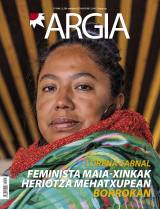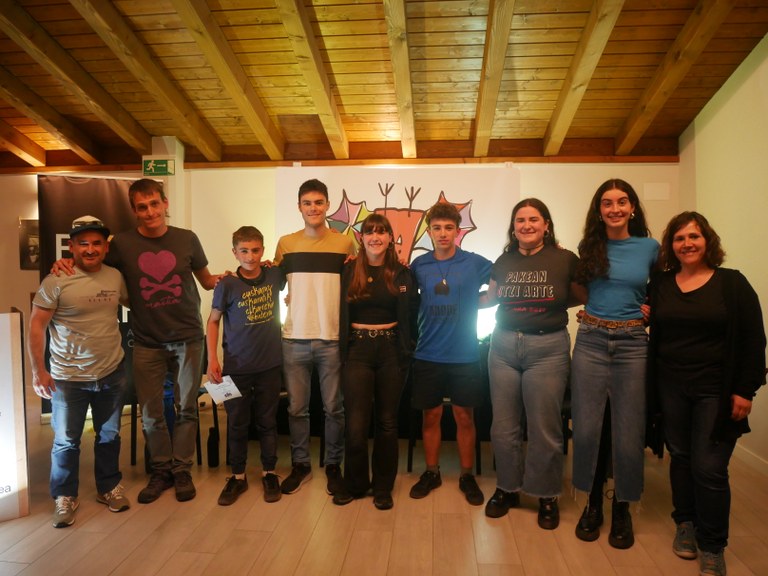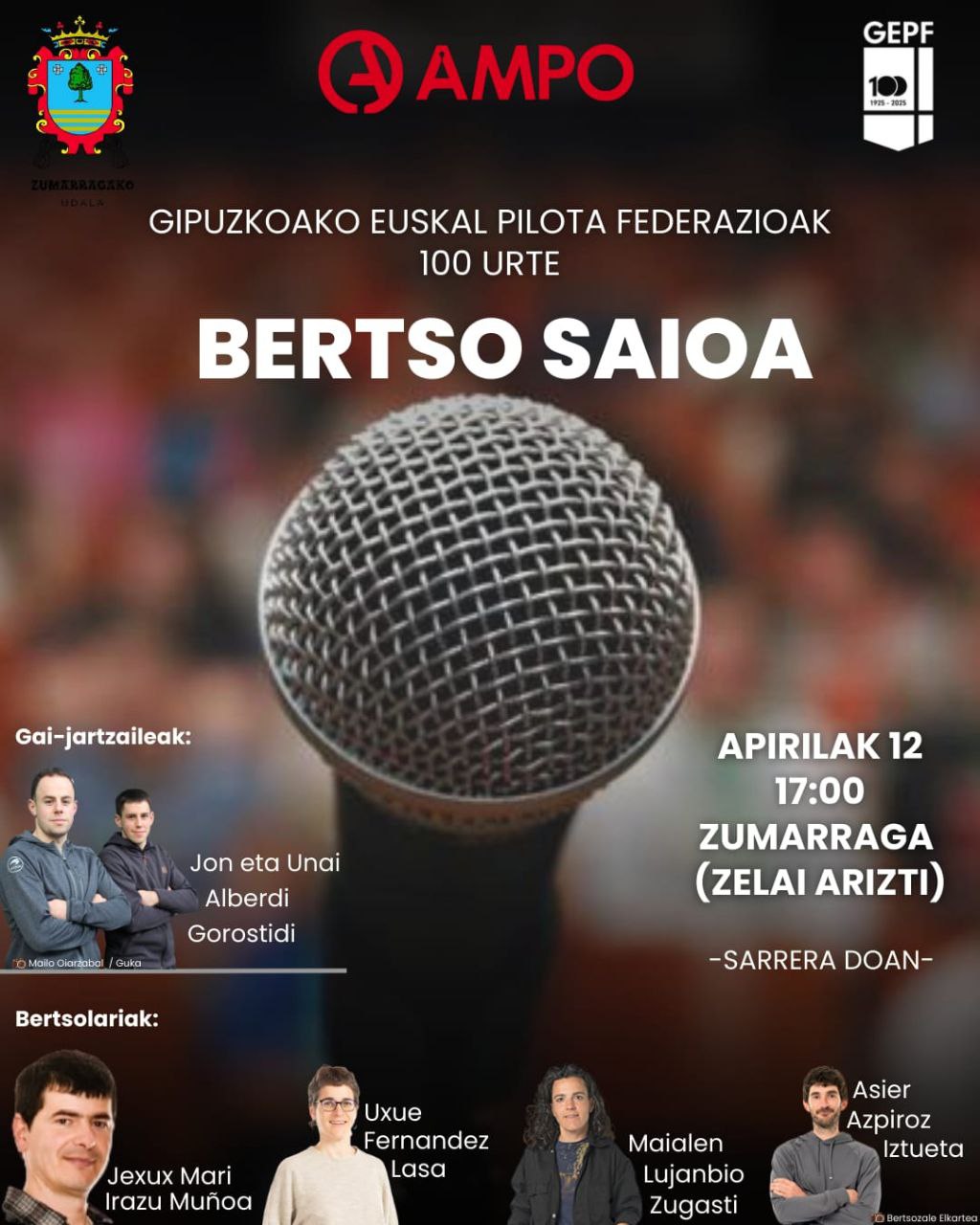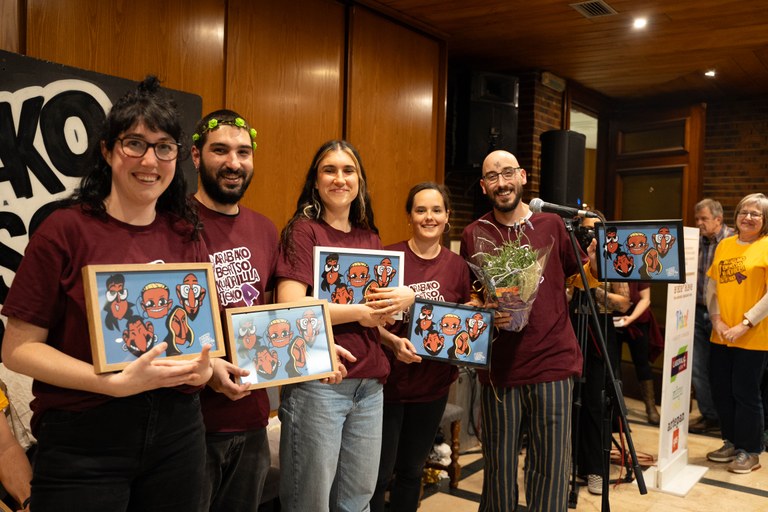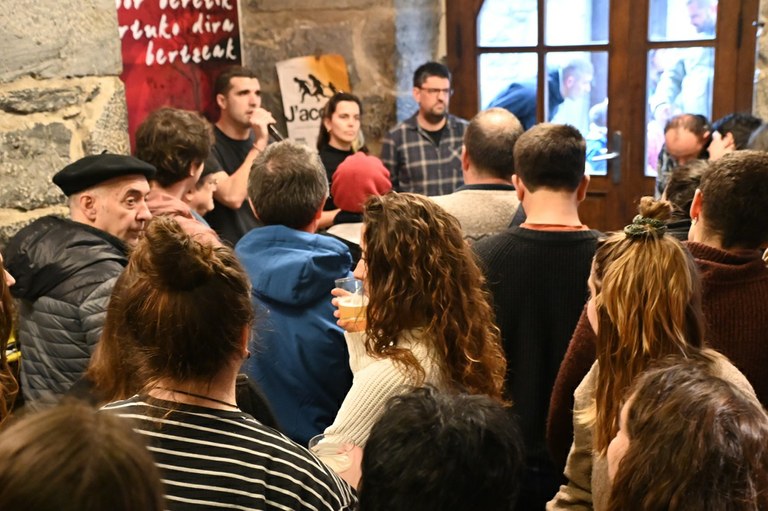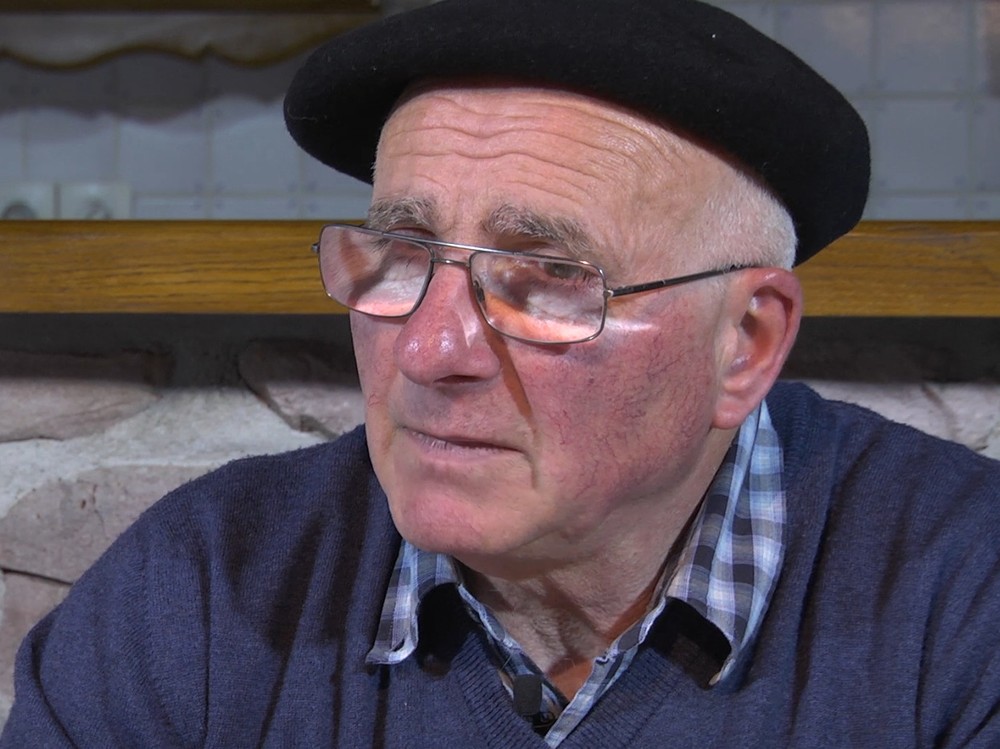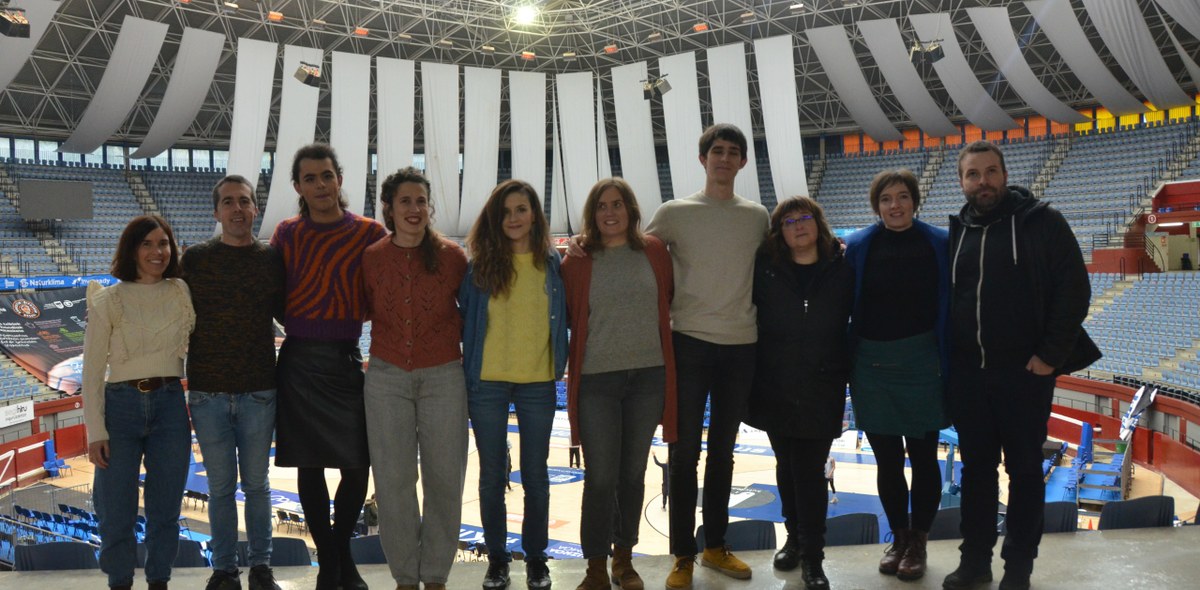In Irun, the Republic knew how to sing bertsos
- In April, a group of bertsos fans of the city began organizing events in tribute to Republican bertsolari Joxe Mari Lopetegi, who does not have enough recognition in Irun. Along with this tribute, Joxan Elosegi has discovered ten new bertsos from Lopetegi. A perfect excuse to put the bertsolari of the early 20th century in the place it deserves.
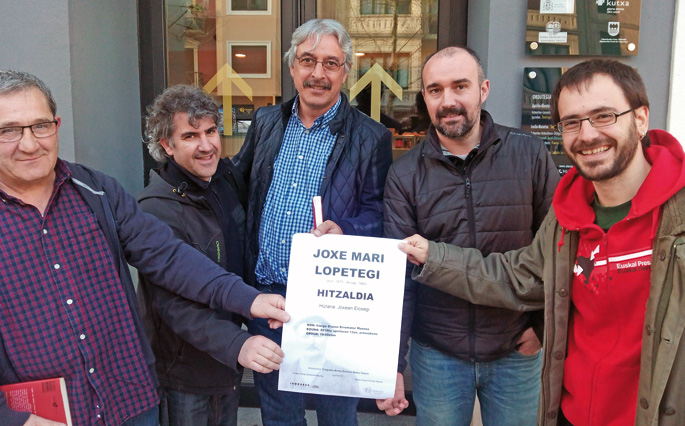
Joxan Elosegi has found most of the new numbers when it was believed that he had been rescued from the old papers: ten unpublished bertsos, prior to most of the well-known Irunés Joxe Mari Lopetegi and different in terms of the subject matter. The author, known for his verses on the politics of the early twentieth century, speaks of other kinds of things in the newly discovered material: the daily life, the rural environment of Irun, the verses dedicated to the Basque… It is an important discovery, because it can show another dimension of bertsolari difficult to classify, while taking his name back to the front line.
Twelve years ago the book Joxe Mari Lopetegi, the bertsolari of Republicans, was published by the editorial Paper Hotsak. Many people were surprised by reading the verses of that collection and with an imaginable character between the lines: that of the street, little fond of priests and, above all, politically committed, a ruined Republican. A rare avis: it is known because it published verses sitting here and there; and it is thanks to the research effort made by Joxan Elosegi to contextualize each lot in its context the fact that a photograph of the fragments of Lopetegi has been formed.
Through the reading of the book, the reader sees that in the early twentieth century the people who lived in Euskera were not as monolithic as what they have sold us – everything, the church, all the habit – and that some concerns, besides being of the time, are constantly repeated in history. For example, the bad tragedies that the one who opposes the dominant opinion has to pass. Once heard, the verses of Askatasuna that Joseba Tapia composed on his album Real Politik 2006 are not carried overhead: How they were shaken by Lopetegi himself, Justo Garate and José Miguel Gutiérrez in Azpeitia in 1931, why they came up with a republican rally in a specially Carlist town.
The pen did not shake Irun's bertsolari to define the aggressors: “They are of the same blood as the legs of Santakruz.”
Character that Irun has to recover
About 40 people sing a bertso at the Oiasso de Irun al museum are from this piece of Tapia. It is the same day that Lopetegi was born in 1875, on April 13, on the eve of the Republic, because chance does not exist. Organized by the Bertsolaris Workshop at the Bertsos School in Txingudi, Joxan Elosegi is offering a talk about Lopetegi, and at one point he has encouraged the audience to sing with music. They're all pretty shy, but the situation has something exciting, especially when they've finished Askatasuna and they've put another song. 80 years after the outbreak of the Civil War, with a series entitled Ekaitza –“… red blood on the surface – ugaldero Bidasoa…”, the scene acquires a tone of tribute to those who suffered a month and a half of siege in Irun.
The city is well aware of the Republic broken by the fascist coup d'état. In Gipuzkoa, with the permission of Eibar, it will be one of the places with the most Republican tradition, as noted every month of April. But the Republican imaginary created in Irun hasn't taken Joxe Mari Lopetegi very much into account. In Elosegi’s opinion, “it’s not known enough”, as language is a great border: “In Irun we live in Basque and there are too many people in Spanish.”
In the new bertsos found, Lopetegi does not appear as political, focuses on everyday life and local issues
In order to overcome this barrier, Lopetegi is located in the place he deserves, a small and dynamic group is working around the Bertsolaris Workshop: Aitor Errazkin, Andoni Zelaia, Iñaki Portugal, Xabier Isasi and Xabier Bengoetxea are preparing a program full of activities to bring the heterodox character to the foreground until next June. As they write these lines, they are still “working in the kitchen”, so we will inform in the digital version of this medium about the news related to the tribute.
Bertsotan in a town where Euskera is being lost
Until the others arrive we have to say something about Joxan Elosegi’s speech, which in almost two hours of work gave a lot of data to put Lopetegi right. Bertsolari was introduced at the beginning of his speech as “son of his time.” “He was born and raised in a liberal environment, had a liberal volunteer father and Lopetegi never faced the environment of his people.”
He was an urban character, lived less than 100 meters from the museum where we heard the talk, on Santiago Street. “We were told that he was a cheerful man, who participated in all the parties and events of the town.” By the hand of the party, bertso. “And the bertso is not understood if we do not place it in the community, in the people. Now we cannot find in Irun a community of this kind – although, fortunately, we have – but at that time Lopetegi and many others would be able to sing bertsos. He would be one of the best.”
The community changed with the increase of what the town was to the city and saw that “Castilian was gradually being imposed”. According to Elosegi, when he reached the end of the first decade of the twentieth century, the Basque language was no longer the main language on the streets of Irun. “He was an exceptional witness to that Lopetegi. He was in favour of the political environment, but in his early verses he is seen to have suffered greatly in the face of these changes.” The first publication of the journal Ibaizabal Semeak amari published in 1903 is a sign of this: the mother is Basque, and the son who sees suffering tells him at the last point “zu orrela baiñan / naiago nuke ill”.
A contractor who wanted to build the republic.
In the verses of the first few years there is a concern about language. As for the loss of the Basque Country, Elosegi said that “Lopetegi did not know very well what had to be done”. More than the situation in the Basque Country, there are other issues in which the following predominate: “Most of the verses we know are political in nature, especially in favor of a cause: The Republic.” In 1911 he published his first Republican verses, a year earlier he died in homage to Francisco Bellido, a precursor and friend of the North American Republicans. In those years he was also appointed a councillor in Irun. There was somebody. “He wasn’t just a worker: he had business, he was a builder, a masonry contractor. He had a crew and workers. The man lived easy,” says Elosegi. In his view, the Republican Party was above all a bourgeois party, although on a social level it was more progressive than the other parties.
Until June, activities have been organized to claim the figure of this heterodox bertsolari
His ideological positions are known for the verses he published. For example, he was a supporter of the Federal Republic – in the words of Elosegi, they were the most leftist supporters of this position in the party – and he was critical of the campaign for the Statute of Autonomy initiated by the PNV in 1931. Bertsolari, who is already 56, does not see with good eyes the understanding between Jeltzales and traditionalists, nor the devotional tone that the project will adopt. Furthermore, it realizes how weak the Republic is, it is convinced that it must first be strengthened.
Guerrero in verse
In 1933, it calms down. Elosegi believes that the "incorrigible" ones that have occurred within the Republican party are the cause of the mutation. And then comes the year 1936, “July Emeritus/Day Black and Poisonous”: Lopetegi is already 61 years old, has no value for war and franchises at the gates of Irun. I couldn't do anything. The troop will pass to Hendaia one day before the golfers enter the city, and there, again, will be dedicated to writing verses about the torn Republic.
Another Lopetegi of this time is, as Elosegi says, that of: “It’s hurt, but nothing has darkened its faith in the Republic and in justice, it has all the anti-fascists, it’s not a matter now to start making partisan.” The verses of the war era seem to him to be the strongest, the most profound. But it also began to end there. He will die in Arrueta (Baja Navarra) in 1942, after living six years as a refugee.
Immediately after his death, his family was imposed a terrible fine, using the expression that Elosegi meant in Spanish, “for political responsibilities.” The relatives had to sell two houses in order to get a fortune. It was just the beginning. Franco’s 40-year-old “peace” came. And for those of you who were Republicans, silence. Antonio Zavala has set as an example the mutism that has been around bertsolari for years the fact that no book has been offered to Lopetegi in the Hauspoa collection: “I don’t think it was because of the bertsolari level. And I knew him, Txirrita had made a portrait of Lopetegi in verse.” Gradually, Irun is working to break the silence.
Maiatzaren 8an hasiko da Bizkaiko Bertsolari Txapelketako sailkapen fasea. Zortzi saio bikoitz jokatuko dira maiatzeko eguenetan. Sarrerak eskuragai daude bertsosarrerak.eus atarian.
Asteburu honetan hasiko da Gaztetxeak Bertsotan egitasmo berria, Itsasun, eta zazpi kanporaketa izango ditu Euskal Herriko ondorengo hauetan: Hernanin, Mutrikun, Altsasun, Bilboko 7katun eta Gasteizen. Iragartzeko dago oraindik finala. Sariketa berezia izango da: 24 gaztez... [+]
Vagina Shadow(iko)
Group: The Mud Flowers.
The actors: Araitz Katarain, Janire Arrizabalaga and Izaro Bilbao.
Directed by: by Iraitz Lizarraga.
When: February 2nd.
In which: In the Usurbil Fire Room.
In recent years, I have made little progress. I have said it many times, I know, but just in case. Today I attended a bertsos session. “I wish you a lot.” Yes, that is why I have warned that I leave little, I assume that you are attending many cultural events, and that you... [+]









